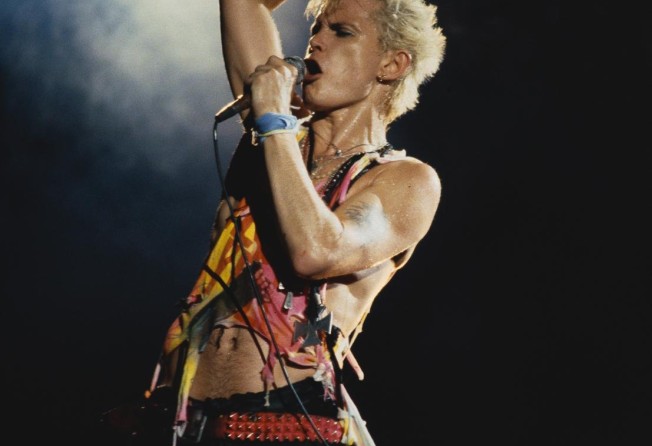
Rewind album: Rebel Yell, by Billy Idol (1983)

Rebel Yell
Billy Idol
Chrysalis

On the face of it, it's a typically cheesy slice of what passed for risqué rock in the early 1980s - lots of nudge-nudge, wink-wink nods and grunts, and more than a hint of misogynistic violence. But it also alluded to Idol's transformation from marginally credible punk star in Britain in the late 1970s to cartoon pop star living the 1980s rock'n'roll dream in the US.
Just a few years before breaking big worldwide with the slick corporate rock of Rebel Yell, his second solo album, Idol was a big name in London's punk underworld. After leaving soon-to-be-important proto-goth band Siouxsie and the Banshees - before they even adopted the name - the singer born William Michael Albert Broad played guitar with bassist Tony James in Chelsea which, in turn, became Generation X.
Though a bit naff by the standards of the "proper" punk bands such as the Sex Pistols and X-Ray Spex, Generation X had a couple of hits in King Rocker and the salacious ode to masturbation, Dancing With Myself.
But when the band split and James formed sado-masochistic cartoon-pop band Sigue Sigue Sputnik, Idol knew what to do: he'd go to the US and sell out. It turned out to be a profitable decision.
Idol arrived in New York and teamed up with Bill Aucoin, former manager of fright-mask rockers KISS, and hired glam-rocker Steve Stevens as guitarist and co-writer.
Idol's parody of punk (perfectly spiked and bleached hair, leather and studs, and hilariously unconvincing sneer), Stevens' fearsome licks and Aucoin's knack for a spectacle played right into the hands of America's burgeoning MTV audience, for whom Idol's brand of style over substance was a design for life.
Early singles White Wedding and a rehash of Dancing With Myself were jabs that softened up the US for the sucker punch that was delivered in 1983 in the form of Rebel Yell.
Selling more than four million copies and spawning four hit singles, including Flesh for Fantasy and the title track, the album made Idol as ubiquitous as Michael Jackson.
Idol's light shone brightly but briefly. He sold increasingly fewer albums as the second invasion of British bands that initially swept him to fame in the US petered out.
For all his posturing and faux-punk strutting, it's impossible not to look back at Idol without a modicum of nostalgic longing. In an age when the plastic pop that Idol championed is taken too seriously by pop stars, there's almost a sense of wholesomeness in his having done everything with his tongue planted in his (sneering) cheek.